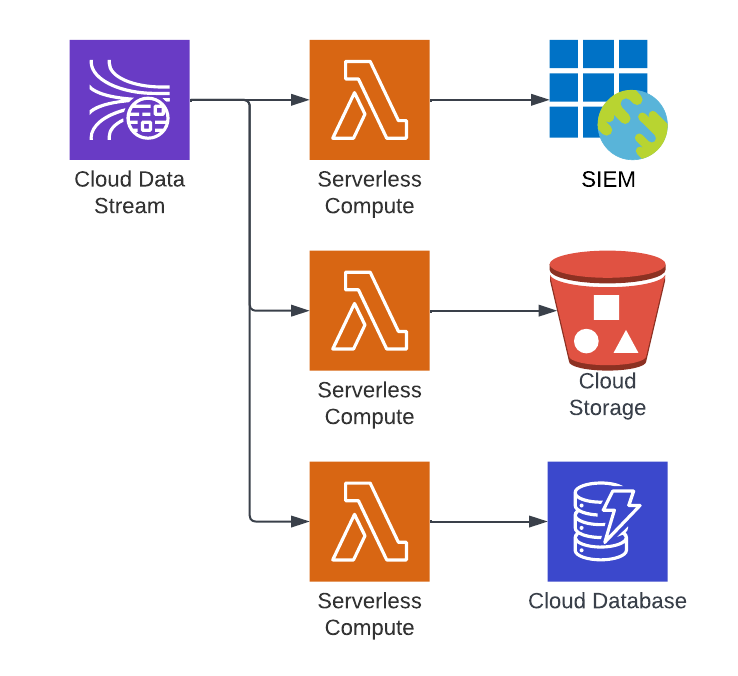
Substation is a toolkit for routing, normalizing, and enriching security event and audit logs.
Explore our guides to learn about the system or keep reading to get an overview!

local sub = import 'substation.libsonnet';
{
transforms: [
sub.transform.object.insert({ object: { target_key: 'a' }, value: 'x' }),
sub.transform.send.stdout(),
],
}
{
"transforms": [
{
"settings": {
"object": {
"source_key": null,
"target_key": "a"
},
"value": "x"
},
"type": "object_insert"
},
{
"type": "send_stdout"
}
]
}
package main
import (
"context"
"fmt"
"github.com/brexhq/substation/message"
)
// Duplicates a message.
type Duplicate struct {
// Count is the number of times to duplicate the message.
Count int `json:"count"`
}
// Transforms a message based on the configuration.
func (t *Duplicate) Transform(ctx context.Context, msg *message.Message) ([]*message.Message, error) {
// Always return control messages.
if msg.IsControl() {
return []*message.Message{msg}, nil
}
output := []*message.Message{msg}
for i := 0; i < t.Count; i++ {
output = append(output, msg)
}
return output, nil
}
func main() {
// Create a data message.
b := []byte(`{"a":"b"}`)
msg := message.New().SetData(b)
// Create the transform.
tf := Duplicate{Count: 3}
// Run the transform.
ctx := context.Background()
msgs, err := tf.Transform(ctx, msg)
if err != nil {
// Handle error.
panic(err)
}
// Print the output.
for _, m := range msgs {
fmt.Println(string(m.Data()))
}
}
